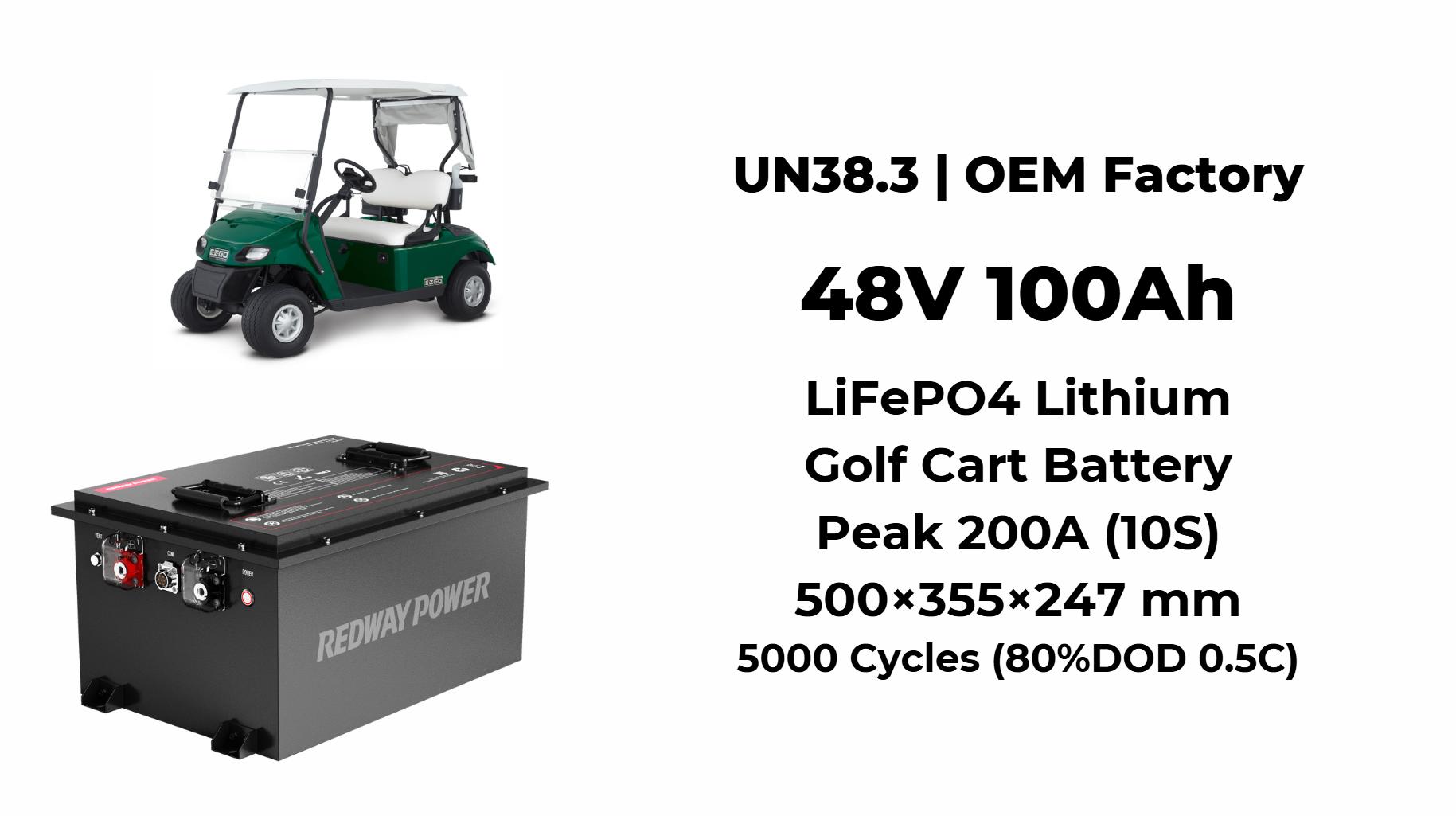
Exploring Specific Brands and Models of Golf Cart Batteries
When it comes to selecting the right battery for your golf cart, understanding specific brands and models is essential for optimal performance and longevity. This guide will explore popular options such as Trojan batteries, RoyPow batteries, and EZ GO batteries, providing insights into their features and benefits.
What Are Trojan Batteries for Golf Carts?
Trojan batteries for golf carts are high-performance deep-cycle batteries designed for durability and reliability. They feature robust construction to withstand harsh conditions and provide consistent power over extended periods. Known for their long lifespan, Trojan batteries incorporate advanced technologies like AGM and flooded lead-acid designs, making them a popular choice among golf cart owners. Trojan batteries are renowned in the golf cart industry for their durability and performance:
- Types Available: Trojan offers various models, including 6V and 8V deep cycle batteries designed specifically for golf carts.
- Performance: Known for their long lifespan and ability to withstand repeated discharge cycles, making them ideal for heavy use.
| Feature | Description |
|---|---|
| Types Available | 6V and 8V deep cycle options |
| Performance | Long lifespan and high discharge capabilities |
How Does the RoyPow Golf Cart Battery Compare?
RoyPow golf cart batteries are lithium-ion options known for their lightweight design, fast charging capabilities, and minimal maintenance. Compared to traditional lead-acid batteries, RoyPow offers longer lifespans (up to 3,500 cycles) and better performance in various conditions. While they may have a higher upfront cost, they provide significant savings over time due to lower maintenance needs. The RoyPow golf cart battery is a modern alternative to traditional lead-acid batteries:
- Lithium Technology: RoyPow batteries utilize lithium iron phosphate (LiFePO4) technology, offering a longer lifespan (up to 10 years) and faster charging times.
- Weight Advantage: These batteries are significantly lighter than lead-acid options, enhancing overall cart performance.
| Feature | Description |
|---|---|
| Technology | Lithium iron phosphate (LiFePO4) |
| Lifespan | Up to 10 years |
| Weight | Much lighter than traditional lead-acid batteries |
What Should I Know About EZ GO Golf Cart Batteries?
EZ GO golf cart batteries typically include lead-acid, AGM, and lithium-ion options. Lead-acid batteries are economical but require regular maintenance, while AGM batteries are maintenance-free and sealed. Lithium-ion batteries offer the longest lifespan and fastest charging times. Choosing the right type depends on your usage patterns and budget considerations. EZ GO golf cart batteries are specifically designed for use in EZ GO models:
- Battery Types: They offer a range of options, including lead-acid, AGM, and lithium batteries.
- Compatibility: Ensure that you select a battery that matches your specific EZ GO model’s voltage requirements.
| Feature | Description |
|---|---|
| Battery Types | Lead-acid, AGM, lithium |
| Compatibility | Match with specific EZ GO model voltage |
What Are the Features of Trojan 6V Golf Cart Batteries?
Trojan 6V golf cart batteries are designed for deep-cycle applications, offering features like high capacity (up to 225 Ah), robust construction for durability, and low self-discharge rates. They provide reliable power over extended periods and require minimal maintenance due to their design that limits internal buildup. These features make them ideal for golf carts and electric vehicles. The Trojan 6V golf cart battery, particularly the T-105 model, is a popular choice:
- Capacity: Offers a capacity of around 225 amp-hours, making it suitable for extended use.
- Durability: Designed to withstand deep discharges while maintaining performance.
| Feature | Description |
|---|---|
| Capacity | Approximately 225 amp-hours |
| Durability | Engineered for repeated discharge cycles |
Why Choose Trojan Battery for Your Golf Cart?
Choosing Trojan battery for your golf cart ensures reliable performance and longevity. With advanced technology that provides consistent power output, Trojan batteries are built to withstand harsh conditions. Their low maintenance requirements and extensive range of models make them suitable for various applications, ensuring you find the right fit for your specific needs. Choosing a Trojan battery offers several advantages:
- Reputation: Trojan has been a trusted name in battery technology for decades.
- Performance Consistency: Their deep-cycle batteries are known for reliability under various conditions.
| Advantage | Description |
|---|---|
| Reputation | Established brand with a history of quality |
| Performance Consistency | Reliable power delivery in all conditions |
How to Select the Right Battery for Your Golf Cart?
To select the right battery for your golf cart, consider factors such as voltage compatibility (36V or 48V), battery type (lead-acid vs. lithium), capacity (Ah), and your usage patterns. Assess how often you use the cart and any specific performance needs, then compare brands and models to find the best option that fits your requirements. When selecting a battery:
- Determine Voltage Requirements: Check if your cart requires 36V or 48V systems.
- Choose Between Lead-Acid and Lithium: Consider your usage patterns; lithium may offer better longevity but at a higher initial cost.
- Brand Considerations: Look into reputable brands like Trojan or RoyPow based on reviews and performance data.
Expert Views
“Choosing the right battery is crucial for maximizing your golf cart’s efficiency,” states an expert at BatteryStuff.com. “Investing in quality products like Trojan or RoyPow can significantly enhance your overall experience on the course.”
FAQ Section
Q: How long do Trojan batteries typically last?
A: With proper maintenance, Trojan batteries can last between four to six years.Q: Can I mix different brands of batteries in my golf cart?
A: It is not recommended to mix different brands as it can affect performance and lifespan.Q: What should I do if my golf cart battery isn’t holding a charge?
A: Check connections, inspect for damage or corrosion, and consider testing or replacing the battery.
